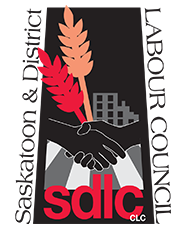List of new private liquor store owners reveals out-of-province corporations are the big winners
The Sask. Party government has moved one step closer to giving away millions of public dollars to the hand-picked owners of 50 privatized liquor stores during a time when Saskatchewan is facing a deficit crisis, according to SGEU.
“Every last one of the 40 public liquor stores being closed makes a profit,” says SGEU President Bob Bymoen. “That’s money that could be used to keep vital public services running during this time of budget cuts. Instead, millions in annual revenue are being handed over to corporations from outside Saskatchewan.”
The big winners in Wednesday’s liquor privatization announcement were out-of-province corporations and their shareholders, which were given the rights to operate all the highly-profitable urban stores. Saskatchewan people and businesses were given licenses only in smaller centres with lower sales volumes.
Sobeys, a Nova Scotia-based corporation owned by the multi-billionaire Sobey family, won the rights to operate nine liquor stores in some of the most profitable communities, including Regina, Saskatoon, and Moose Jaw.
Other urban stores went to B.C.-based Metro Liquor Inc., and to Liquor Stores N.A. – an Alberta-based liquor retailer that has donated to the Sask. Party in each of the past five years.
“Public liquor store profits help pay for health care, highways, and schools,” says Bymoen. “Now, this money will instead go into the bank accounts of private business owners and corporations – at a time when Saskatchewan people are being asked to accept cuts to programs and services they rely on. Saskatchewan people are the clear losers in this plan; the only ones benefiting are the select few who will profit from it.”
While the government continues to falsely claim, without providing any evidence, that its liquor privatization plan is revenue neutral, SGEU points to a peer-reviewed study published by the Canadian Centre for Policy Alternatives, which found that liquor privatization will cost Saskatchewan taxpayers $115 million over the next five years. Although the government is correct that it will no longer pay liquor store operating costs (which average about 14 per cent of sales), it fails to mention that the plan involves cutting the mark-up by 25 per cent. This mark-up is government’s main source of revenue from liquor sales.
Along with the loss of public revenue, almost 200 good jobs will be lost from the Saskatchewan Liquor and Gaming Authority as private stores begin operating.
“Privatization will replace family-supporting jobs with low-wage, low-benefit positions,” says Bymoen. “People’s families and livelihoods will be affected, and local economies will suffer, in order to increase profits for corporations based outside the province.”
- 30 -
For more information contact:
Evie Ruddy
Communications Officer, SGEU
306-775-7877
Or
Bob Bymoen
President, SGEU
306-539-0030





